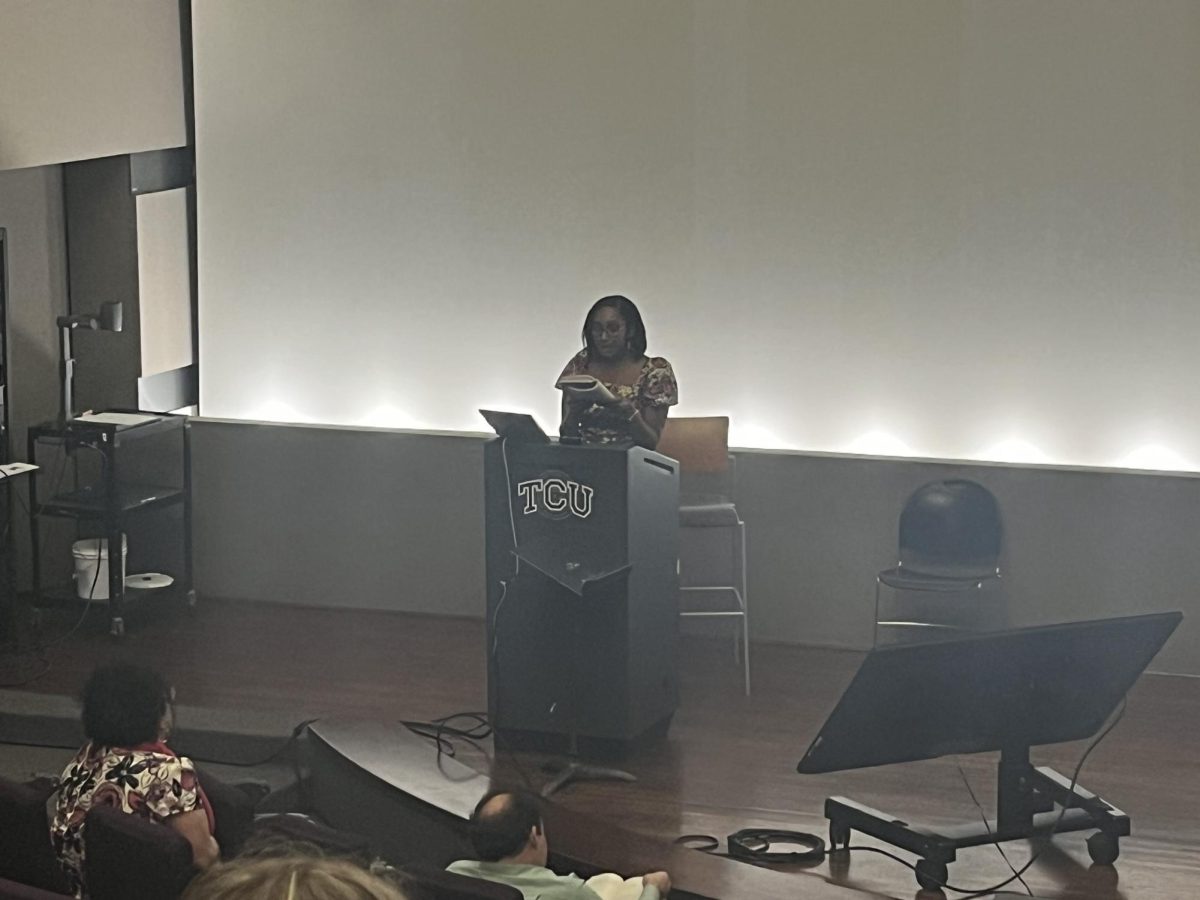Ishmael Beah had a different childhood. He learned how to use a gun when he was 13, like many child soldiers who are still forced to join battles in the jungles of Africa.
Beah, a human rights activist and best-selling author of “A Long Way Gone: Memoirs of a Boy Soldier,” will speak today as part of an event sponsored by the TCU Center for Civic Literacy and the Amon G. Carter Foundation. The book was ranked as one of the top-10 nonfiction books of 2007 by Time Magazine.
Beah, a Sierra Leone native, was forced to become a child soldier in his country’s brutal civil war when he was 13. He was removed from the army by UNICEF and later adopted by an American storyteller in New York. He attended the United Nations International School in Manhattan and graduated with a degree in politics from Oberlin College.
In a video clip from his Web site, Beah said he wrote the book because it is absolutely important that people understand how children are recruited in wars in Africa and other places around the world.
“When I first came to the United States, I was very shocked that people don’t know what is going in Sierra Leone,” Beah said in the clip. “People don’t even know where Sierra Leone is.”
Karen Anisman, associate director of development and community outreach for the Center for Civic Literacy, said the center is bringing Beah to campus because what is happening in Sierra Leone is a timely and heartbreaking issue.
According to a June 2007 Human Rights Watch document, thousands of children were recruited and used by all sides during Sierra Leone’s conflict. Thousands of girls were also recruited as soldiers and often subjected to sexual exploitation, according to the document.
In an interview with CNN, Beah said he lost all of his family in the civil war and was fed and protected by the government, which later trained him to fight in the war.
Soldiers were given guns and forced to watch war films. They also had to take drugs so they could go for weeks just running around, and were not afraid to shoot anyone, Beah said.
“If you are an able body that can carry an AK-47, they wanted you to become part of it,” Beah said in the interview.
He told CNN he didn’t think much about it because at that time it was just about survival.
“We were told that you are fighting for your country,” Beah said. “You are fighting to stop all the kids from losing their families like you’ve lost your family.”
He said in the interview he lost his own humanity at that time and so did all the people around him.
“When you kill a human being, it does something to you,” Beah said. “It traumatizes you and it changes you.”
Beah told CNN before he wrote the book, he had lived through all these memories and will continue to live through them for the rest of his life.
“I am doing this because I want people to be aware of it and to understand the people that this is happening to are human as anyone else,” Beah said. “It’s not some far-away people from some far-away place.”
Beah said in the interview he is lucky to have escaped being a child soldier because he believes somebody must have been looking out for him.
“Surviving in the war doesn’t have anything to do with being trained or being a good soldier,” Beah said. “It’s just pure luck.”
But those memories will always be there, and it’s not something he can put behind him, he said.




